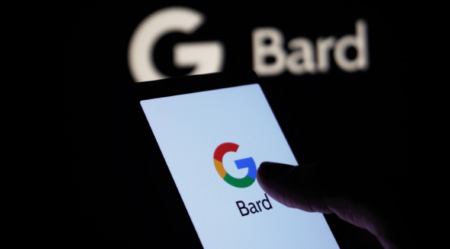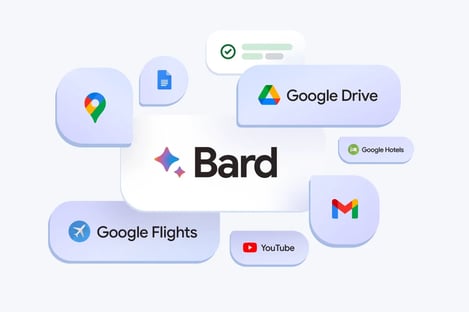
Image: Mojahid Mottakin in Unsplash
Google's Bard AI chatbot has expanded its capabilities beyond merely sourcing answers from the internet. Now, it can delve into your Gmail, Docs, and Drive to assist you in locating the details you need. This enhancement allows users to request Bard to extract and condense the content of an email or pinpoint the key elements of a document saved in Drive.
These new functionalities, termed extensions by Google, offer a variety of applications. They aim to eliminate the tedious task of manually searching through heaps of emails or documents to retrieve specific data. Furthermore, Bard can utilize this extracted data in different ways, such as converting it into a graphical representation or drafting a bullet-pointed summary. Currently, this feature supports only the English language.
However, granting Bard access to personal emails and documents might spark privacy and data usage worries. Google assures users that this data won't be employed to refine Bard's general model and will remain unseen by human evaluators. The integration with Gmail, Docs, and Drive is optional. Users will be prompted to activate it and can deactivate it whenever they wish.
To leverage this feature, Jack Krawczyk, Bard's product head, informed The Verge that users can instruct Bard to directly probe their Gmail by initiating their query with @mail. Alternatively, a simple request like, "Scan my email for details about my forthcoming trip," would suffice.
But Bard's capabilities aren't confined to Gmail, Docs, and Drive. Google has also unveiled Bard's compatibility with Maps, YouTube, and Google Flights. This enhancement empowers users to instruct Bard to fetch real-time flight data, identify nearby landmarks, extract YouTube content on specific subjects, and much more. These three extensions will be activated by default.
Krawczyk explained that this initiative is groundbreaking as it marks the debut of a language model product interfacing with personal user data. He emphasized Google's commitment to perfecting this integration. He also hinted at Google's ambition to broaden Bard's compatibility with other Google services and even external partners.

Image: Google
Google is also refining Bard in other significant ways. A notable addition is the "Google It" button, which allows users to validate Bard's responses. Previously, this button directed users to related Google search results. Now, it will indicate if Bard's responses align with or deviate from Google Search's findings.
Clicking the "Google It" button on compatible responses will display validated information in green, while unconfirmed responses will appear in orange. Hovering over these highlighted segments will provide additional insights into Bard's accuracy. Another enhancement enables users to prolong their interaction with Bard based on a shared link, facilitating an extended inquiry based on a prior question.
Since Bard's launch in February, Google has been progressively enhancing its features. This includes capabilities like code generation and debugging, and crafting functions for Google Sheets. A recent update also integrated Google Lens with Bard, enabling users to brainstorm caption suggestions for images or seek more details about them.
As Google's Bard showcases the power of AI and innovation, at Band of Coders, we too value creating solutions tailored to your needs. We offer more than just the latest tech; we provide software development services that align with your business goals. Whether you're inspired by advancements like Bard and want to improve customer interactions, streamline processes, or develop new AI tools, our team is here to help. Get in touch to start your digital journey with us.
